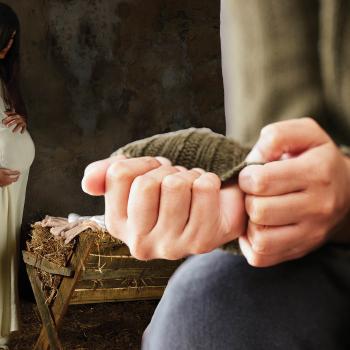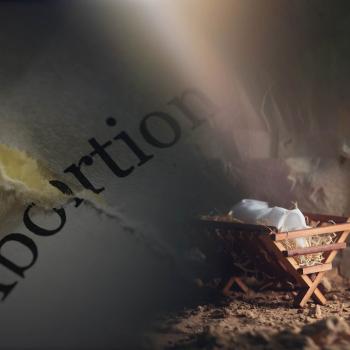
In 2012, when I became the president and CEO of Care Net, the Republicans and Democrats supported very different national policy positions on abortion.
The Democrats’ policy position has remained largely unchanged: abortion on demand at any time during the pregnancy, for any reason, no exceptions. In fact, supporting abortion is now a litmus test for the party. However, the Republican national policy position has changed dramatically. Indeed, the implications of this change should transform the national dialogue around the issue of abortion. Whether it will remains to be seen.
In 2012, when Mitt Romney was the Republican nominee for President, he and the Republican party opposed all abortions, except in cases of rape, incest, and the life of the mother. This exceptions-based position would make nearly 98% of abortions illegal. Furthermore, even the exceptions were evaluated through a moral lens that aimed to balance compassion for the vulnerable woman impacted during conception or childbirth with the vulnerable baby affected by the abortion procedure.
Today, the national Republican policy position is in disarray. Presidential candidate Donald Trump recently announced that, essentially, the Republican party does not have a national position on abortion, but that the issue should be left to “the will of the people” at the state level. Other major Republican figures have publicly supported anything from a 6-week ban to a 15-week ban, which would include the 2012 exceptions. The most recent CDC abortion statistics indicate that a 15-week ban, plus the exceptions, would allow nearly 98% of abortions.

While a few states, such as Texas and Florida, have passed stricter limits on abortion, it is clear that the Republican party’s varied positions are very different than the unified 2012 Republican position. In fact, despite the rhetoric on both sides, the abortion debate from a national policy perspective is no longer about bans but rather about abortion availability.
As a result, the inconvenient truth when evaluating each party’s policy positions through the metric of saving babies in the womb from abortion is this: both parties are essentially pro-choice—one pro-choice with no exceptions and one pro-choice with some exceptions.
Now, I certainly acknowledge and appreciate that many Republican politicians at all government levels are deeply pro-life. They speak forcefully for the cause of life and are working earnestly to put in place policies and initiatives to support women at risk for abortion so that they do not feel compelled to make that decision. Moreover, I am thankful for the significant work that was done to make the Dobbs decision to overturn Roe v. Wade a reality.
But the impact of the rhetoric and these efforts will be muted and short-lived if the overall national policy position is either non-existent or allows for 98% of abortions. Indeed, embracing the current policy position cedes the abortion issue to the pro-choice side even before one steps up to the debate podium. No doubt, the Democrats would not consider a politician to be pro-choice if he or she indicated that we should just “leave it up to the states,” or if he or she embraced a policy position that allowed abortion in just 2-3% of cases, would they?
That said, I am not naïve to the political dynamics at play here. But one needs to be clear regarding what the abortion debate is about. It seeks to answer the question, “When is it acceptable for the powerful to take the life of the vulnerable, for the sake of the powerful?” Indeed, when considering this important question, every politician is faced with the same dilemma that Pontius Pilate faced when he sent an innocent man, Jesus, to his death.
Specifically, should one be swayed by the shouts of a powerful and vocal crowd to give them what they think will make them happy, even if one must sacrifice the innocent to do so? It takes a level of moral clarity to resist these voices. After all, the politics of abortion do not change the morality of what happens in an abortion. In the 2012 Presidential election season, the Republican party had this moral clarity. I hope that they can have it again, and that the Democratic party can get this clarity now, because vulnerable lives in the womb are at risk.
But where should Christians expend their pro-life energy given the reality that the two major political parties are nearly identical – and essentially pro-choice – on abortion?
First, I do not think we should abandon the political process. We still have a duty to call for just laws that protect the innocent, and to align our moral positions with our political positions as much as possible. But Christ stood before Pilate to teach us three things: the limits of politics; the danger of politicians who don’t prioritize truth; and the power of the crowd.
The crowd shouted for the release of the criminal Barabbas, not the innocent Jesus. Pilate the politician, who was not interested in truth, gave them Barabbas. So, if we want to change the decisions that politicians make, we have to change the crowd. While that seems like a monumental task, as Christians we must start by changing our pews… removing the log in our eye before removing the speck in the culture’s eye. After all, according to the Guttmacher Institute, 54% of abortions are among women who profess to be Catholic or Protestant.
But how do we change our pews? How do we create that elusive “culture of life” in our nation without relying on politicians to “save us”? After all, Jesus never expected Pilate to save him, so why should we?
In short, Christian pro-life efforts must become laser-focused on the reasons why women seek abortion in the first place, which are linked to missing support, primarily from the father of the baby, and on providing compassion, hope, and help to women and men considering abortion. We must provide the material, emotional, and spiritual support they need to choose life for their unborn children and better lives for their families.
Indeed, there is plenty of worthy, ongoing work being done that desperately needs the attention of pro-life Americans. Parachurch ministries such as pregnancy centers and maternity homes are doing amazing work to serve hundreds of thousands of people every year, but they are usually underfunded, underappreciated, and are often the subject of physical and legal attacks. Christians need to help these organizations not just survive, but thrive.
There is also the sleeping giant in the efforts to serve those at risk for abortion: the Church. Fortunately, more churches are becoming engaged in pro-life ministry, but much work remains to be done. Indeed, Christians must focus on mobilizing and training those in the pews of the 350,000 local churches in the United States to minister to those at risk for abortion, which Care Net is doing through its Making Life Disciples ministry. But full engagement of the Church will only happen if the abortion issue is framed rightly as central to the core mission of the Church: living out the Great Commandment (loving one’s neighbor) in order to fulfill the Great Commission (making disciples for Jesus Christ).
The merging of the Republican and Democrat national policy positions on abortion that has taken place over the last decade — and was accelerated by the overturning of Roe v. Wade — provides Christians with an urgent opportunity to refocus our efforts on loving and serving the women and men who feel that abortion is their only choice. Millions of unborn children are counting on us.
















